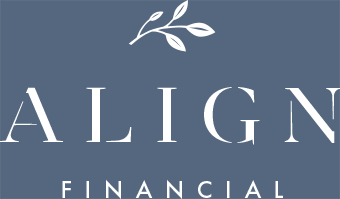Like any financial planning strategy, life insurance may not make sense for everyone. However, as your financial goals evolve, you may want to consider how insurance can help you achieve them.
Financial planners love to talk about goals with our clients. In fact, identifying financial goals is typically the first step in developing a sound financial plan and investment strategy.
Yet reaching your financial goals typically requires more than a well-constructed investment portfolio. For example, cash flow planning, tax and estate planning, and risk management all play into a comprehensive financial plan.
Notably, life insurance can address a range of financial planning needs for individuals, families, and even business owners. But many investors overlook life insurance as a strategic planning tool.
Indeed, only 52% of U.S. adults reported having life insurance in 2021, according to a recent LIMRA study. And Forbes recently reported that women are twice as likely as men to lack coverage.
What Is Life Insurance?
Life insurance is a legal contract that pays a death benefit to a beneficiary or beneficiaries upon the policyholder’s death. The policyholder either pays an upfront premium to activate the policy or pays premiums over time to keep the policy active.
There are several different types of insurance policies to meet a variety of needs. In general, the biggest decision policyholders must make is whether to purchase term life or permanent life insurance.
Term life insurance is typically more affordable than permanent life insurance and provides coverage for a set period. You pay premiums over the life of the contract, and once it expires, you lose your benefit. In some cases, you can convert a term life policy to a permanent policy at expiration without having to go through the certification process again.
Meanwhile, permanent life insurance covers you indefinitely. As such, it’s generally more expensive than term life insurance. However, the primary advantage of permanent life insurance is that it pays a death benefit no matter when you die.
How Much Does It Cost?
Several factors affect the cost of life insurance. In general, the primary three variables that determine price are mortality, interest, and expenses.
Mortality takes into account age, gender, health, and other lifestyle factors to estimate how long a policyholder will live. On the other hand, interest and expenses are related to the insurance company itself. They reflect how much the company can earn by investing policy premiums and how much it costs them to administer coverage.
In addition, the type of policy you select and coverage amount also affect the cost. Your occupation, driving record, and medical history may also impact your premiums.
At the same time, certain factors shouldn’t affect your life insurance premiums. These include your ethnicity, race, and sexual orientation, as well as your credit score, marital status, existing insurance coverage, and total number of beneficiaries.
For many people, age tends to be the primary determinant of cost. For example, in 2021 the average cost of a 20-year, $500,000 term life policy–the most common term length and coverage amount–was $37/month for a 25-year-old male, according to data from Senior Market Sales. Meanwhile, a 25-year-old female would have paid $31/month for the same policy.
If they waited until age 45 to purchase the same policy, the average premium would have increased to $95/month for men and $75/month for women. From there, insurance premiums can increase by up to 10% per year for each year you wait, depending on your health and other factors.
Who Should Consider Life Insurance As a Planning Tool?
Many people assume they don’t need insurance until they have a family. While this is certainly one reason to purchase a policy, there are other lesser-known scenarios for which life insurance can also be an effective planning tool.
Consider the following situations where life insurance may be appropriate:
You’re Starting or Growing Your Family
Providing for your family in the event of your untimely death is one of the primary reasons people tend to purchase insurance.
Indeed, life insurance can replace the income your family depends on to meet daily living expenses. And if you have young children, it can also cover potentially costly educational expenses.
At the same time, life insurance can cover large expenses associated with your death–for example, funeral costs. It can also go towards debt you’re still paying down, like student loans.
You’re Part of a Blended Family
Anyone who’s part of a blended family knows that the dynamics can be complicated. Accordingly, life insurance can help you care for all of your loved ones while potentially keeping the peace, so to speak.
For example, suppose you’re remarried but have children from a previous marriage. You may want to provide for your new spouse if something happens to you. But you also want to ensure your children inherit certain assets.
In this case, you may want to consider purchasing a life insurance policy that names your new spouse as the beneficiary. Meanwhile, you can bequeath other family assets to your children via your last will and testament or living trust.
Alternatively, if you have children from multiple marriages, you can purchase several insurance policies to provide equally for your children when you die.
It’s important to note that life insurance may not be a silver bullet for quelling awkward family dynamics. Anyone who feels they have a valid claim to a life insurance policy can contest a beneficiary. However, doing so typically results in a long legal process, and only a court decision can overturn a beneficiary designation.
You May Be Subject to the Estate Tax
Depending on the size of your estate, it may owe federal and potentially state taxes when the estate transfers to your heirs. In 2022, the federal estate tax can range from 18% to 40% and generally only applies to estates worth more than $12.06 million. However, since tax laws are continually in flux, this threshold may change over time.
Many wealthy people purchase insurance to pay the estate tax and preserve more of their estate for their heirs. At the same time, life insurance can provide immediate liquidity to pay various taxes and other expenses when you die if your assets are difficult to quickly convert to cash.
You Own a Business
Lastly, life insurance can be a helpful planning tool for business owners.
For succession planning purposes, an insurance policy can help fund purchase or sale agreements if you die unexpectedly. Alternatively, if you have multiple children, it can provide a cash inheritance for those who won’t inherit a share of the family business.
In addition, key person insurance (a type of life insurance) can be beneficial if your untimely death would threaten the survival of your business. For example, it can help pay employee salaries or vendors while the business regroups.
Is Life Insurance Right for You?
Once you decide to purchase life insurance, it’s important to review your policies regularly to ensure they’re still aligned with your goals. This is especially important if you experience a major life event such as marriage, divorce, or the birth of a child.
It’s also wise to periodically review the financial strength of your insurance carrier and make changes as appropriate. Any threats to its long-term survival may affect the company’s ability to pay your benefit down the road.
Finally, it can be challenging to navigate the complexities of insurance, including the various providers and policy types. A trusted financial advisor like Align Financial can help you determine if life insurance can help you successfully achieve your financial goals. And while we don’t sell insurance, we can work with you to find the best policy and coverage for your objectives. In addition, we can help you identify other strategies to minimize risk and preserve your wealth long-term.
If you’d like to speak with a member of our team to see if we may be the right fit for your financial planning needs, please contact us. We’d love to hear from you.













